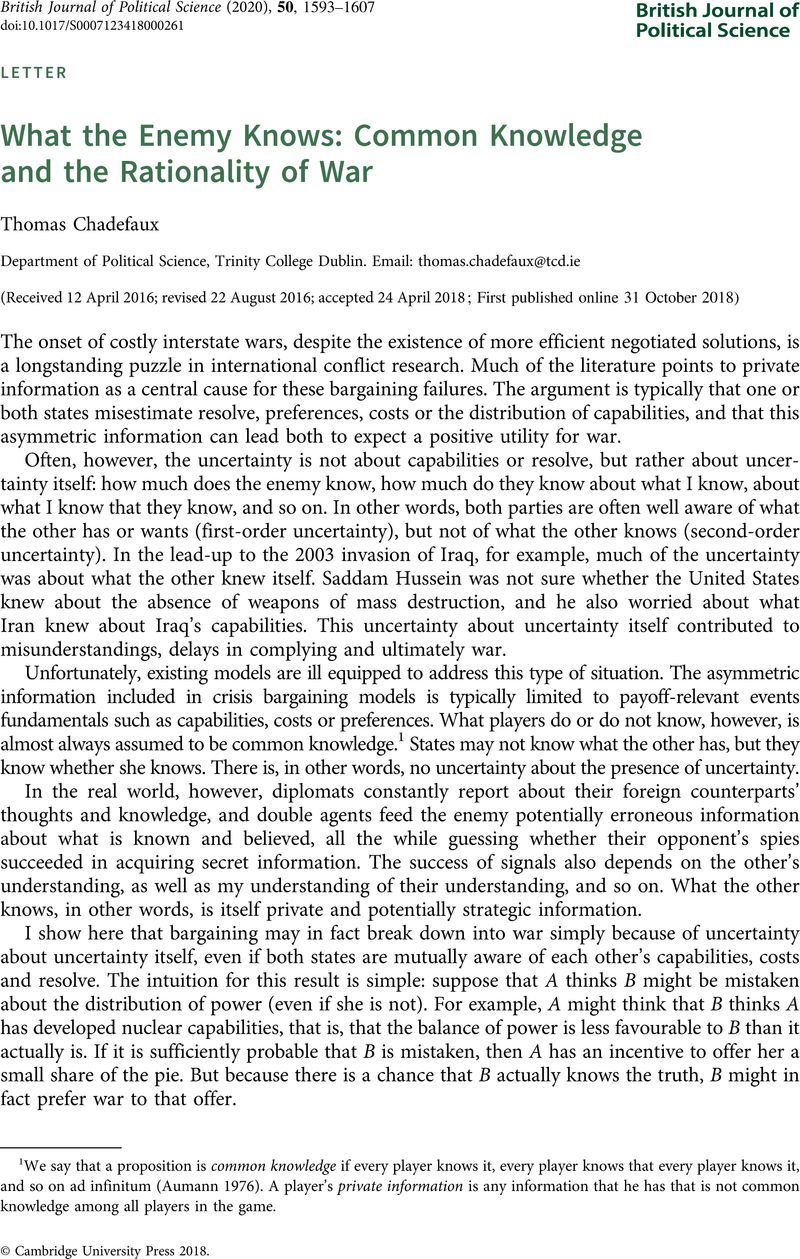Crossref Citations
This article has been cited by the following publications. This list is generated based on data provided by Crossref.
Darwich, May
2020.
Escalation in Failed Military Interventions: Saudi and Emirati Quagmires in Yemen.
Global Policy,
Vol. 11,
Issue. 1,
p.
103.
Dafoe, Allan
Zwetsloot, Remco
and
Cebul, Matthew
2021.
Reputations for Resolve and Higher-Order Beliefs in Crisis Bargaining.
Journal of Conflict Resolution,
Vol. 65,
Issue. 7-8,
p.
1378.



